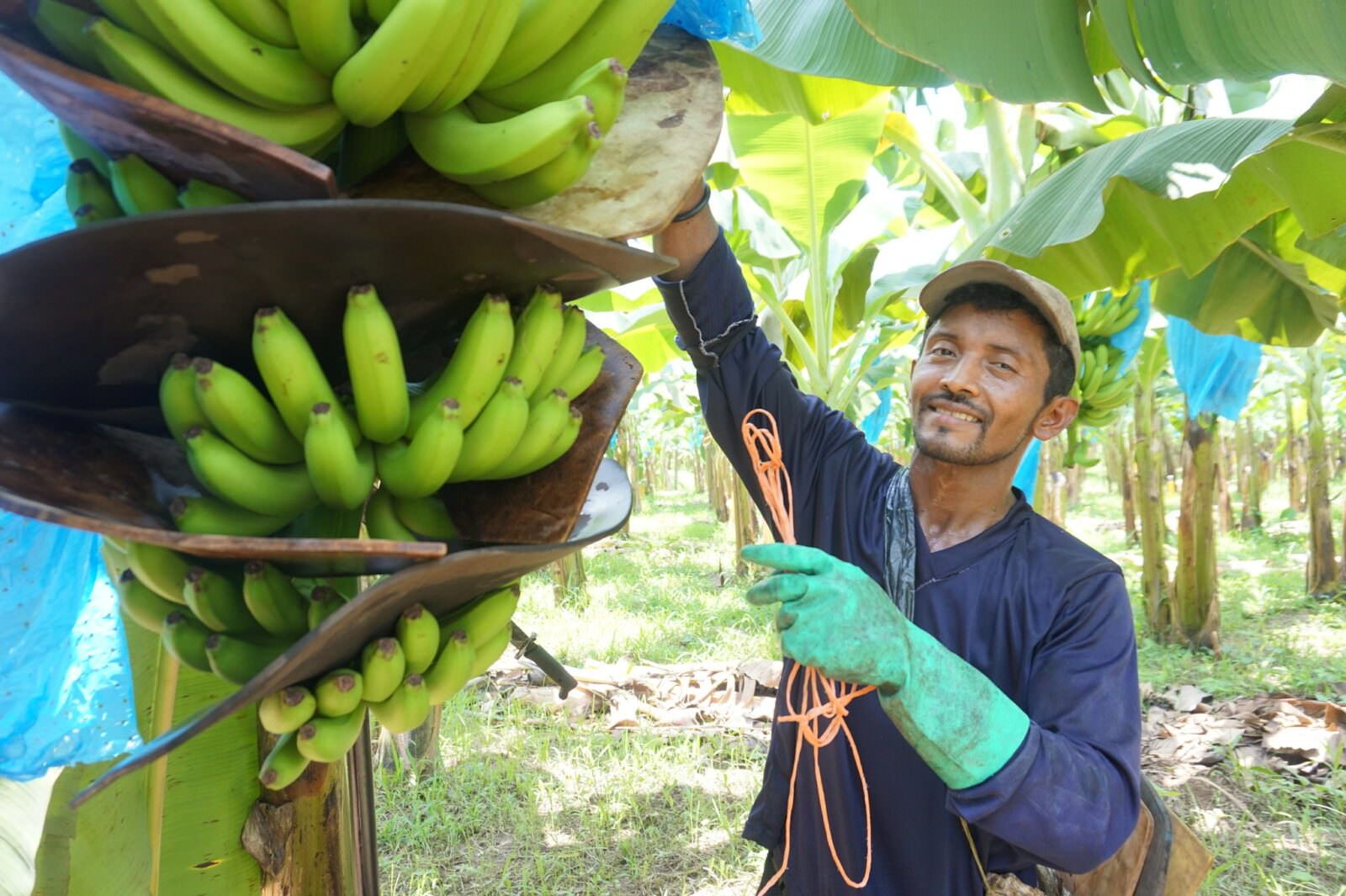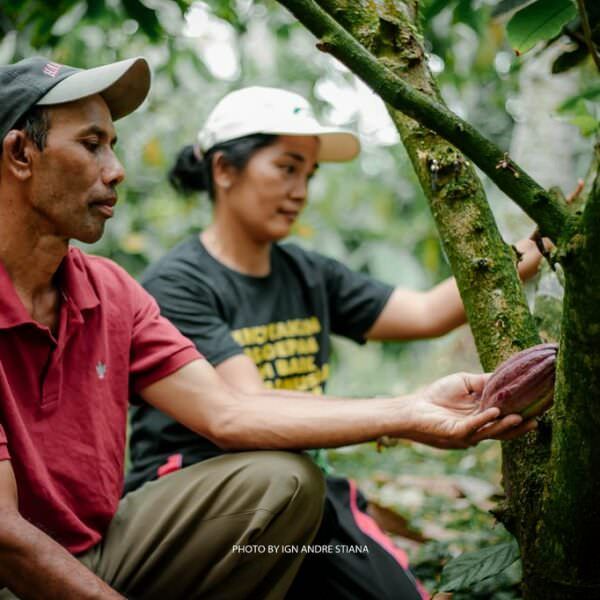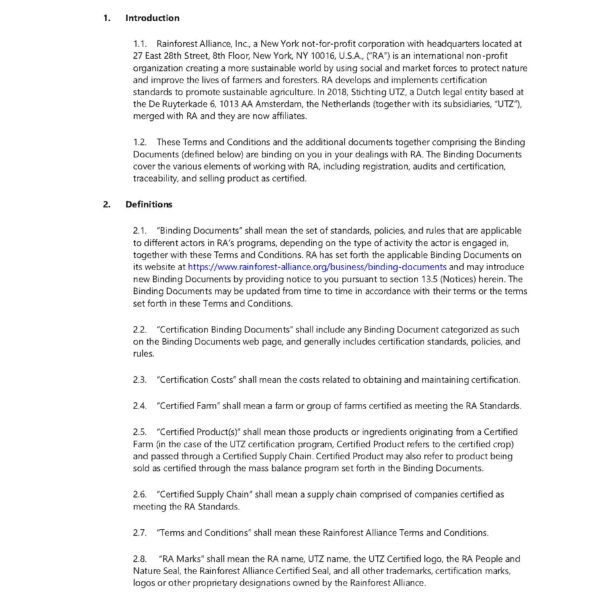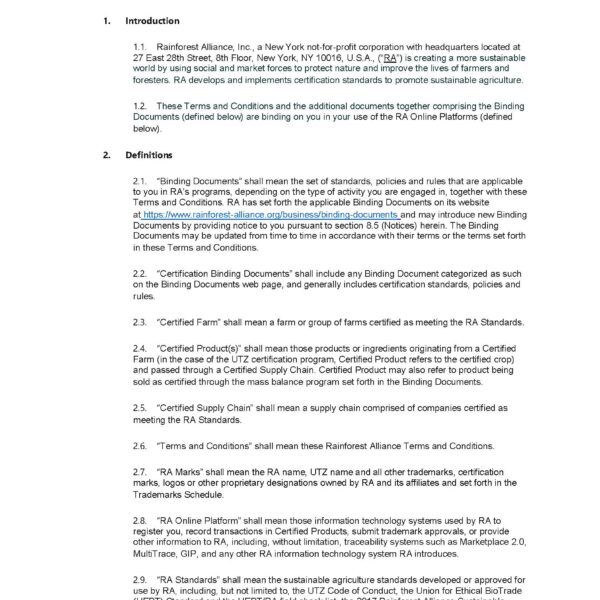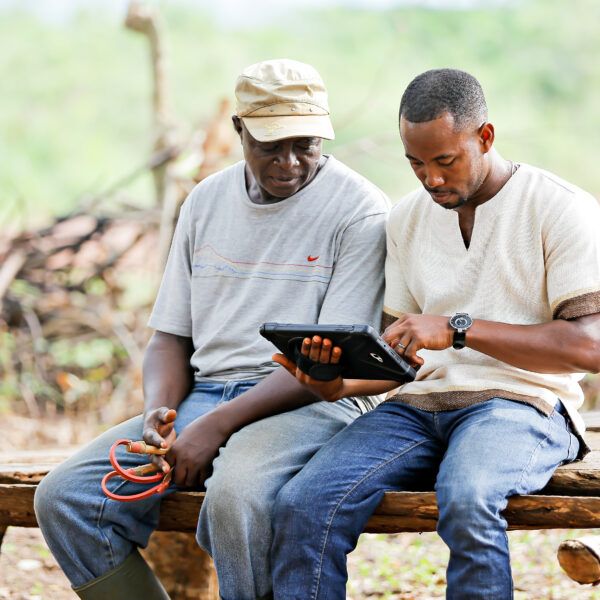Over the years, our Standard for Sustainable Agriculture has guided farmers around the world to ensure the wellbeing and health of their workers and their families. As part of the standard, we ask farmers to ensure that all farm workers have access to health services, either by supporting local health centers or by building their own clinics.
But a banana company in Ecuador has taken a step beyond what is requested by providing mental health coverage. This company has extended beyond basic healthcare because it recognizes that there are psychosocial needs not being met in the rural areas where it operates.
Jasafrut is a banana exporting company with an international market, mainly operating in Europe. It has its own farms, in addition to receiving fruit from other farmers. Through its Equapak Foundation, Jasafrut promotes projects aimed at ensuring the wellbeing of its staff, suppliers, their families, and the local communities surrounding the farms.
A natural ally
Knowing about Equapak’s actions, we had no doubt that the foundation would be a good ally for Promoting better social and environmental practices in the banana value chain, in key regions of Ecuador and Guatemala, a Rainforest Alliance initiative funded by the Walmart Foundation.
As part of this initiative, we aim to benefit more than 8,000 people and work with banana farms covering more than 8,000 hectares. We hope to increase the conservation of native vegetation by eight percent, as well as establish buffer areas to achieve broad watershed protection and ecological connectivity.
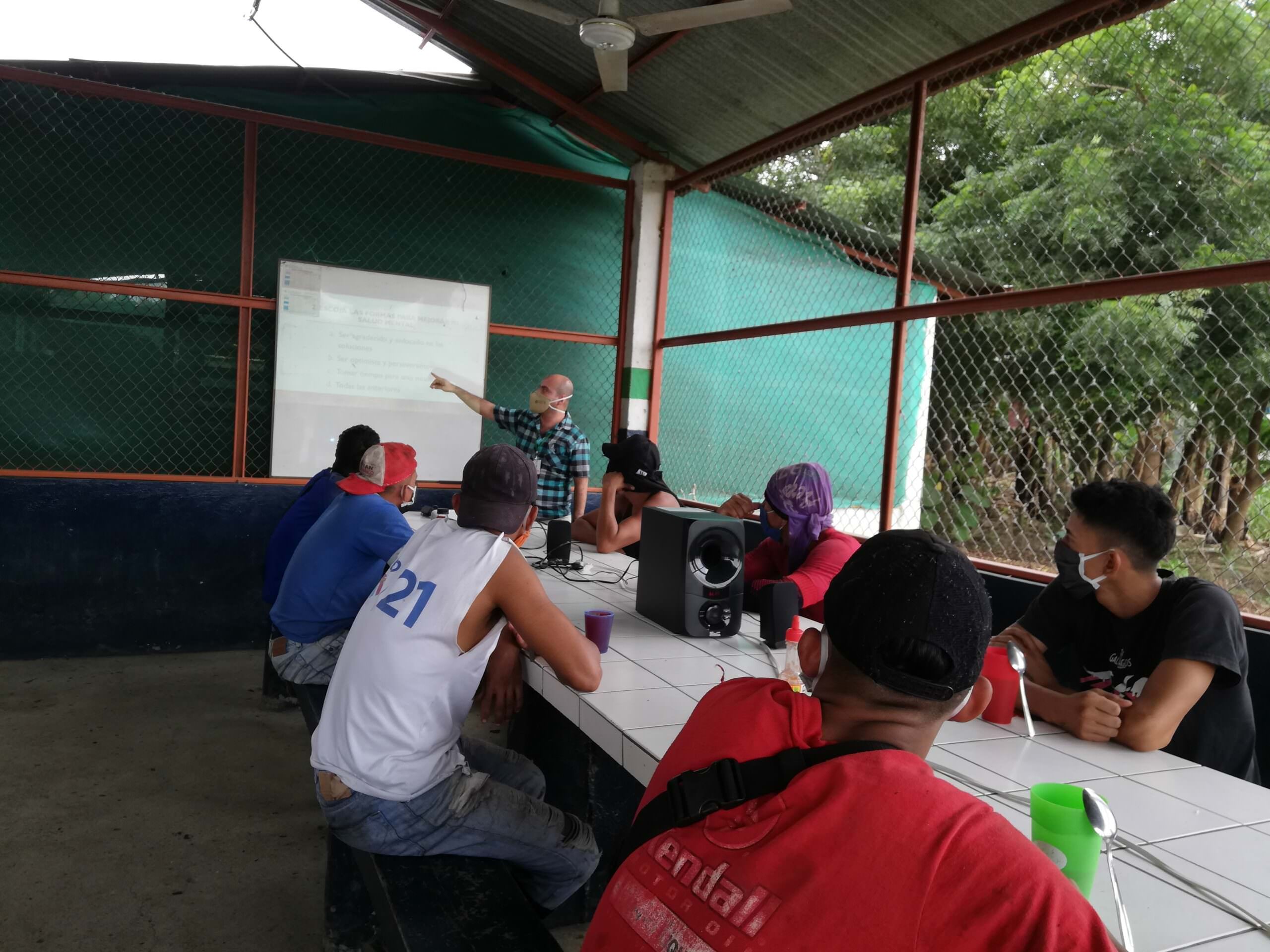
“This initiative will engage and train 2,400 members of farmers’ households in health and sanitation practices, complement corporate responsibility, and financially support Equapak so that it can partially pay medical personnel salaries and other logistics expenses. We will also provide technical assistance to document the experience, strengthen the occupational safety activities, and encourage local entrepreneurship,” explains Oscar Maroto, Rainforest Alliance’s Team Manager, Fruits for Latin America.
Integral healthcare
Five years ago, Equapak Foundation began integrating mental health into the healthcare it provided for workers. This was in compliance with Ecuadorian government guidelines, which require it for companies exceeding 10 workers. This was impactful because the farms’ surrounding communities, including the working population, largely suffered the impacts of alcohol and drug addiction and gender violence.
According to Johnny Jara, the psychologist leading the mental health program, the program first needed to gain the trust of the workers before they would participate in this voluntary service. As many of the employees began to use these mental health services, their relationships with their partners and children gradually improved.
The implemented model included periodic visits made by the psychologist, Dr. Angel Reyes, to the different farms. During these visits, Dr. Reyes offered personalized attention and group workshops. In these meetings, the psychologist would address topics such as addiction prevention, domestic violence, psychosocial risks, communication, and work stress.
In addition, Equapak carried out recreational and educational activities and workshops in the broader community. Older adults who had been previously employed by Jasafrut, active employees’ relatives, and other neighbors were included in the outreach. Community members also benefited from clinics located on 11 different farms (which included a first aid nursing staff, medicine, laboratory samples, physical care, and specialized care with Dr. Angel Reyes). The surrounding educational centers also offered talks on sexuality and drug use prevention.
Adapting to the pandemic
Then, the pandemic arrived.
The COVID-19 health emergency has not stopped Equapak’s work in mental health, but it has required adjustment to the new circumstances. They now offer individual consultations through video calls, and talks now happen with smaller groups. Though it has multiplied the work of the psychologist, the foundation reports that in the third quarter of 2020 alone, 112 people attended individual sessions and 718 people joined group talks. COVID-19 prevention measures are carefully considered in all cases.
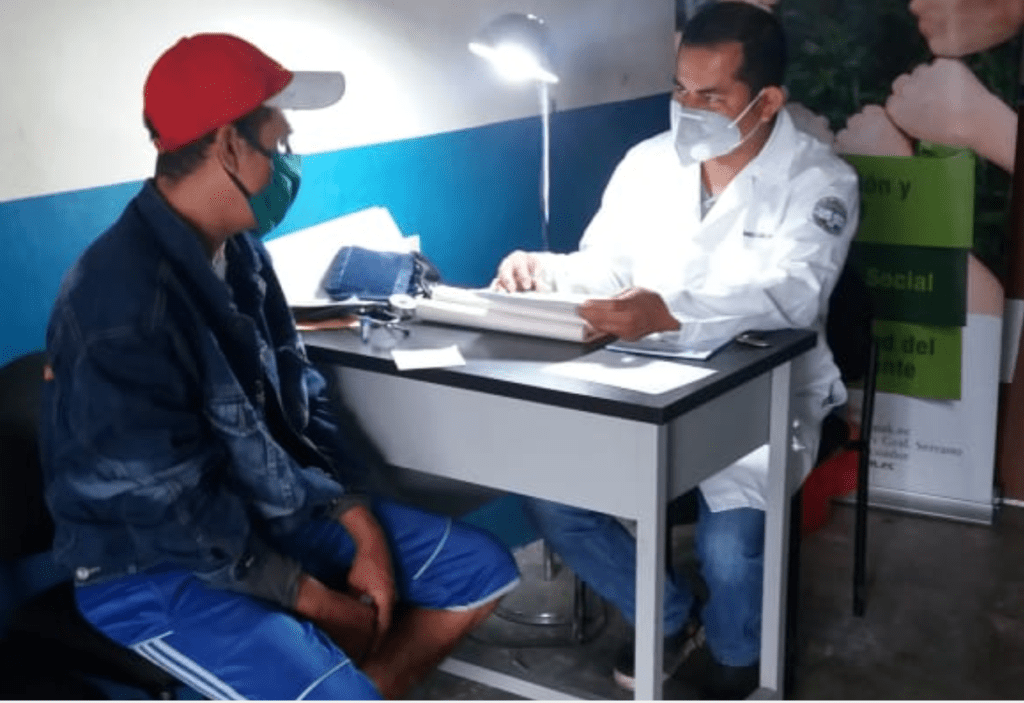
Reyes recognizes that, if it weren’t for the existence of these medical clinics and scheduled visits, workers, their families, and the greater community would have to travel long distances to access healthcare. Almost 1,000 people received healthcare between July and September 2020. “Our main concern is the health and wellbeing of all employees of the banana production units, providing basic preventive physical and mental care, as well as encouraging good habits and the development of skills in entrepreneurship, leadership, and community organization,” says Jorge Maldonado, Director of Equapak Foundation.
Learn more about how we’re working with the banana sector on our new Certification Program.
